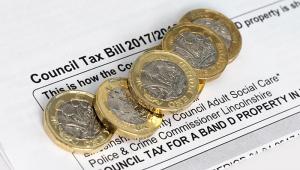The study highlighted that 40% of the countries output is produced in London and the South East and average incomes in the North West, South West, West Midlands and Wales are now more than 30% lower than in London.
Wednesday's interim report from IPPR Commission on Economic Justice, backed by the Archbishop of Canterbury, also warned the UK economy no longer translates economic growth into rising wages.
It stated gains from growth have gone largely into profits rather than earnings, and the UK economy is now in the longest period of pay stagnation for 150 years.
IPPR noted that though GDP per head has risen by 12% since 2010, average earnings per employee have fallen by 6%.
Since the 1970s the share of national income which has gone to wages has gradually declined, from 80% to 73%, while the share going to profits has increased.
The wage share is now the lowest it has been since the second world war, said the report.
Archbishop of Canterbury Justin Welby said: “Our economic model is broken. Britain stands at a watershed moment where we need to make fundamental choices about the sort of economy we need.
“We are failing those who will grow up into a world where the gap between the richest and poorest parts of the country is significant and destabilising.”
The commission is calling for “fundamental reform” on the scale of Atlee’s 1940s reforms, which gave birth to the welfare estate or the Thatcher revolution of the 1980s.
Tom Kibasi, IPPR director and chair of the Commission on Economic Justice, said: “The British economy needs fundamental reform. We don’t have a British economic model. We have an economic muddle.”
Kibasi said the economic issues faced by the UK since 2008 require more than “tinkering” to be resolved.
He added: “There is a growing consensus across business, trade unions and civil society that a radical new approach is now needed.
"Change should be guided by a new vision for the economy, where long-term prosperity is joined with justice for all.”
The report calls for public debate on a range of reforms, including:
- A fairer and simpler tax system, that incentivises economic ‘goods’ like investment and employment and dis-incentivises ‘bads’ like pollution and property prices. It suggests that taxes could be earmarked for health and social care
- A better distribution of wealth, potentially through new taxes and a sovereign wealth fund to better distribute national wealth
- Much greater economic power for the UK’s nations and regions, including greater ‘fiscal devolution’ and regional banks to support local economies
- Stronger trade unions, to help raise wages and protect workers in the ‘gig economy’
- Better regulation and taxation of monopoly digital companies to ensure that data created by consumers is used for public benefit and supports widespread innovation
The full report will be released in the autumn of 2018.











